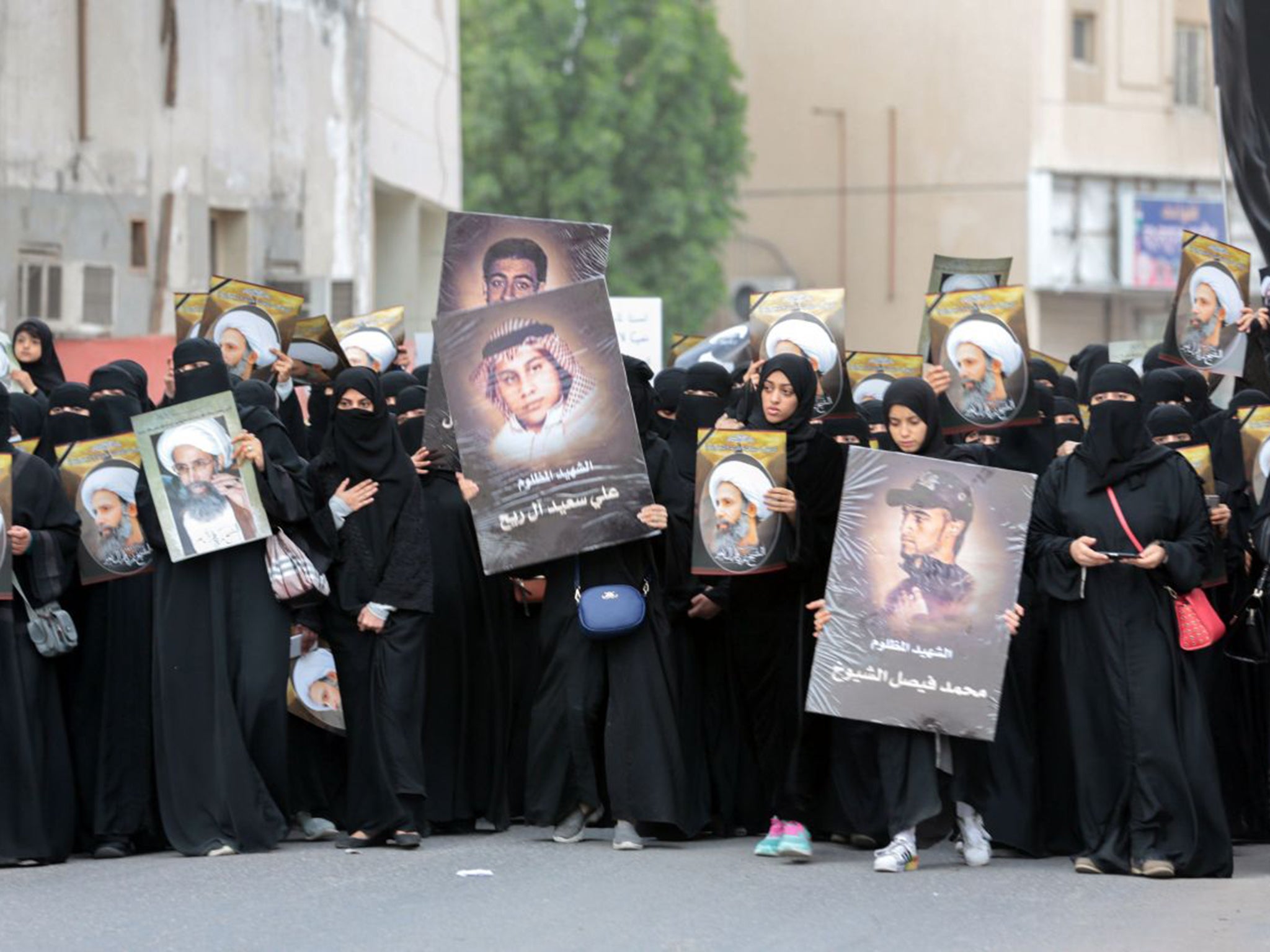Your support helps us to tell the story
From reproductive rights to climate change to Big Tech, The Independent is on the ground when the story is developing. Whether it's investigating the financials of Elon Musk's pro-Trump PAC or producing our latest documentary, 'The A Word', which shines a light on the American women fighting for reproductive rights, we know how important it is to parse out the facts from the messaging.
At such a critical moment in US history, we need reporters on the ground. Your donation allows us to keep sending journalists to speak to both sides of the story.
The Independent is trusted by Americans across the entire political spectrum. And unlike many other quality news outlets, we choose not to lock Americans out of our reporting and analysis with paywalls. We believe quality journalism should be available to everyone, paid for by those who can afford it.
Your support makes all the difference.In the tightly controlled world of Saudi media, few stories have caught the public imagination more than the sensational claim that the authorities have broken up a huge spy ring.
Saudis were told that the agents, who went on trial this week, were controlled by Iran and had operated for many years in the kingdom, apparently with great success.
Almost all the defendants are Shia from the oil rich Eastern Province where street protests and calls for democratic reform have bubbled up since 2011, and where anger reached fever pitch in January with the execution of a leading cleric and vocal critic of the Saudi regime Sheikh Nimr al-Nimr.
According to the Saudi press, the spy ring handed over sensitive information about military facilities, carried out economic sabotage and incited sectarian hatred. Sleeper cells had been established in several cities, including Mecca and Riyadh. Agents had even met, it was claimed, with Iran’s Supreme Leader Ayatollah Khamenei.
The public prosecutor is seeking the death penalty for most of the 32 alleged spies. But those close to the men who have been charged, and the wider Shia community, see political motives in the arrests. And it doesn’t hurt that the narrative draws attention away from looming subsidy cuts that will hit ordinary Saudis hard.
It is also a distraction from the messy, war in Yemen launched nearly a year ago by Mohammed bin Salman, the Saudi defence minister and favoured son of the King.
Among those detained in March 2013 was Sheikh Badr al-Taleb, whose arrest has shocked his family and friends. He had pursued his religious studies in the Iranian city of Qom before moving to Mecca from his hometown of Saihat in Eastern Province. The 38-year-old father of six had set up a small business, a restaurant, catering to the Shia community and he performed religious duties for his community in Mecca.
“He is a peaceful man, very religious, very gentle, he never spoke about anything political, he never criticised the government,” said a friend, who preferred not to give his name.
The friend said that since the sheikh’s arrest, the family has had very limited access to him. He has been allowed to make phone calls of no more than three minutes duration once or twice a month. When they were able to visit him, he told the family about being burnt with cigarettes, placed in solitary confinement and deprived of sleep for three days. They say he was denied the Koran and, when he was removed from solitary, was placed in a cell with a mentally deranged inmate.
The Saudi authorities did not respond to a request to comment on the allegations of abuse and the withholding of legal rights but they routinely deny such claims, insisting that in all such cases they follow appropriate legal procedures.
Now the families fear that anything they say will be used by the authorities to punish both them and the prisoners. A wall of silence has been created that leaves them feeling isolated and terrified.
When the friend was asked if Western governments should be doing more to intervene he replied: “Of course. They say they support freedom. This is their time to prove it.”

Join our commenting forum
Join thought-provoking conversations, follow other Independent readers and see their replies
Comments